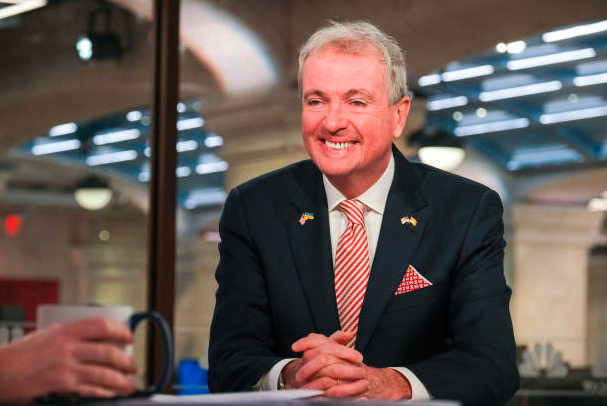Governor Phil Murphy highlighted his administration’s efforts to improve NJ Transit during his budget address, emphasizing progress in lifting the organization out of a crisis.
“We faced a severe shortage of engineers, conductors, and bus operators,” Murphy stated during Tuesday’s budget address.
“Riders and commuters faced being stranded because of ongoing delays and sudden cancellations.”
In the new proposal, businesses earning over $10 million would be taxed through the Corporate Transit Fee, with the funds allocated to NJ Transit’s future.
Murphy declared, “We will increase this revenue without placing any additional burdens on small and medium-sized businesses.”
In a statement, Kevin Corbett, the President and CEO of New Jersey Transit, expressed…
“We appreciate that the governor has made it a top priority to establish a steady stream of new, committed financing for NJ TRANSIT.
Public transportation is essential for numerous New Jersey residents who depend on these services to commute to work, school, or medical and other appointments.
It is crucial to sustain these essential services for the region’s economy, especially as we and numerous other transit agencies nationwide work towards recovery from the pandemic.
Governor Boosts Transportation: Forward-Thinking Investment

The Governor’s dedication will secure the strength of our transportation system and enhance the advancements we’ve achieved in enhancing reliability and safety, as well as increasing accessibility and promoting growth in communities throughout the state.
We appreciate the Governor for his strong leadership and forward-thinking in highlighting this important investment.”
The Corporate Transit Fee proposal is facing strong resistance from both within and outside the State House.
Republican Assemblyman Christopher DePhillips and some of his colleagues prefer tapping into the state’s $6 billion surplus.
“It’s known as a rainy day fund,” DePhillips stated. “This situation goes beyond a rainy day for New Jersey Transit, it’s a stormy day.”
Declan O’Scanlon, the Republican Senate Budget Officer, believes that the budget can be revised to eliminate the need for businesses to be taxed.
“It’s not a good idea from a messaging perspective and it’s not a good idea from a policy perspective,” O’Scanlon stated.
Thomas Bracken, the President of the New Jersey Chamber of Commerce, describes it as a ‘nightmare’ scenario.
“It sends the wrong signal to the rest of the country,” Bracken remarked. “We aim to draw in businesses to New Jersey and retain them within the state.”
Some view the proposed fee as a modern iteration of the state’s Corporate Businesses Tax, which was in effect for several years before expiring in December.
One significant distinction is that the tax applied to businesses earning $1 million in profit, not $10 million.
The budget must be submitted by June 30, at the beginning of the new Fiscal Year.
